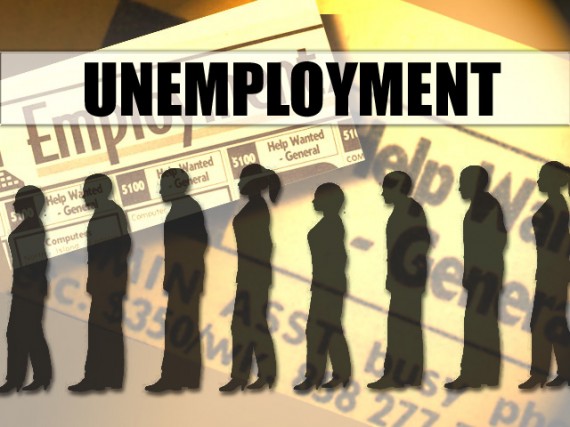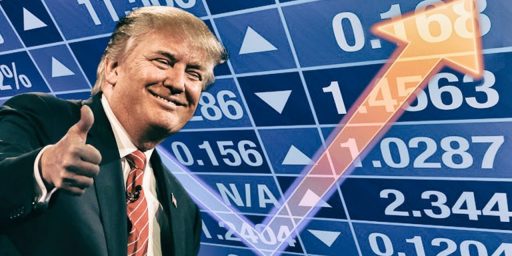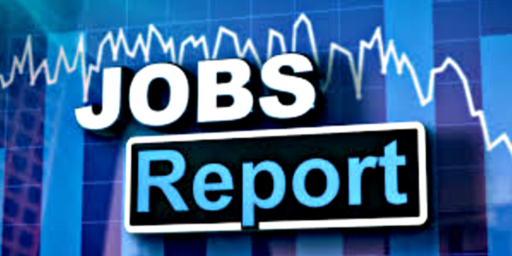So Much For The Summer Of Recovery
There are further signs that the economy will remain anemic through the end of 2010, if not longer.
A new survey of economists finds little room for optimism on the economy:
July 10 (Reuters) – The U.S. economy will lose steam as the year progresses but will not slide back into recession, even though unemployment is unlikely to fall significantly, according to a survey released on Saturday.
The Blue Chip Economic Indicators survey of private forecasters found analysts increasingly glum about the outlook. They now see the economy expanding just 3.1 percent in 2010, down from 3.3 percent in the June poll.
They do not, however, envisage a renewed period of contraction, which has been widely debated in financial markets in recent weeks.
“Our panelists think talk of a double-dip recession is overblown absent a new, major shock,” the group said in its report.
Some analysts worry such a disruption might come from Europe, where concerns about high debt levels have made the banking sector jittery about lending.
The report’s findings highlight the risks of a sputtering recovery amid lingering softness in housing, suggesting the unemployment rate will end the year at 9.4 percent, barely down from the current 9.5 percent rate.
“For a second straight month the number of panelists that lowered their forecasts of nominal GDP growth and inflation exceeded those that raised their forecasts by a significant margin,” the report said.
In other words, economists are seeing exactly the kind of anemic, low job-growth, recovery that I talked about earlier this month when the unemployment figures were released. Technically, it won’t be a recession since we’d still have positive economic growth, but that’s hardly going to matter to the hundreds of thousands of people who can’t find jobs, and it’s going to make the next economic downturn that much more painful.
What this also means is that unemployment is likely to remain about 9% through Election Day. If it does drop at all, it will be because more people have simply given up looking for work — which is the reason, incidentally, that the rate dropped from 9.7% to 9.5% in June — and, ominously if you’re a Democrat, the economy will be in forefront of voter’s minds when they go to the polls. That can’t be good news for the White House.






We’ve talked about “structural unemployment” off and on here. The most pessimistic thing I’ve read on that recently:
http://curiouscapitalist.blogs.time.com/2010/07/09/the-perilous-problem-of-the-persistantly-unemployed/
I guess it’s all about how much this is just a cycle and how much it is chickens coming home to roost.
I guess this is also related …. I was surprised to hear a comment attributed to the Chinese, that “state capitalism” had now triumphed over the “free market.” I wouldn’t go that far, but it did provide a head-spinning moment, as I recalled the “free market” triumph over “socialism.”
FWIW, I think the key difference between China and the US right now is that they can accept that part of their population will be genuinely poor. They try for progress, but they can accept the Foxconn wages in the meantime.
We still have this contradiction between free markets, free trade, and the expectation that everyone will have a job that puts them in the middle class.
With the effects of the health care overhaul coming, cap and trade coming, card check on the way, and who knows whatever else a lame duck congress will want to pass we can expect business to remain hunkered down. That means no hiring and few capital expenditures. Our socialist direction will continue to put fear into those who create jobs and produce wealth.
Steve,
To that you can add the economic impact of the end of the Bush tax cuts.
You don’t need to invent unpleasant futures to explain the present, Steve.
The dynamic I just laid out, between free trade, wages in China, and employment in the US has been building for 20 years. Add in the (well accepted) connection between Chinese surpluses and American consumer borrowing and you have it in a neat package.
The real BS comes from politicians of both parties, when they think they can just “promise” jobs in this environment. Or if you are an intellectually bankrupt conservative, you can just fret “socialism.”
(I guess I could add the invention of the shipping container as one of the key changes in global balances. Once you got to where a handful of guys could unload a shipload of Asian goods, the labor-cost equation tilted for good.)
A good write up out of Time Magazine, thanks.
Carlos Guiterrez, ex Bush Commerce Secretary, was on TV recently, and he said “dynamics have not changed.” This guy is an idiot and a shill for business and cheap labor. The dynamcis have changed and it changed years ago. It is 2 billion cheap laborers that want our jobs.
I think if you look at this graph, and in the 70’s we had the trouble with inflation, and in those time we saw higher inflation, higher interest rates, and higher unemployment.
Today, it is deficits and debt, and globalization. The past 25 years or so we had lower inflation, lower interest rates, and lower unemployment. Mistakes, failed ideology, and total ignorance during this time is setting us up for 10 to 20 years of higher unemployment. When times are good, you have to look at the problems and to the future, and not to satisfy the electorate for this day. In any case, the trend line for higher unemployment will look like the 70’s or a high flat double digit rate. We will not see 5% unemployment for 20 years.
http://www.google.com/imgres?imgurl=http://www.bsos.umd.edu/socy/vanneman/socy441/trends/unemp.gif&imgrefurl=http://www.bsos.umd.edu/socy/vanneman/socy441/trends/unemp.html&usg=__5moL4jb9N363SZPdr_RKTjEGBA4=&h=600&w=800&sz=18&hl=en&start=9&itbs=1&tbnid=hQYQSnoShCVqeM:&tbnh=107&tbnw=143&prev=/images%3Fq%3Dunemployment%2Bgraph%26hl%3Den%26gbv%3D2%26tbs%3Disch:1
“…now see the economy expanding just 3.1 percent in 2010,” I just don’t see this even happening. Unemployment will probably get past 10% again. We are down to the core of employment where no one is getting a raise in pay & others are seeing a decrease in pay. It’s going to get quite ugly towards the end of the year.
Gold/Silver is too high to invest in, but I am now telling everyone to buy lots of canned food now with an expiration date of 2013. Buy now, a can of beans for $1…..eat 2013 when the stores are selling it for $1.45. You invest your money and don’t have to pay capital gains, but invest in canned food. Why not? You will have to be buying that can of beans anyway in 2013 so save money and do it now.
…
http://online.wsj.com/article/BT-CO-20100709-704760.ahtml
I’m not sure I believe him.
Unemployment in my town is over 30%. Nothing surprises me.
We need some optimists here to cheer us up. 😉